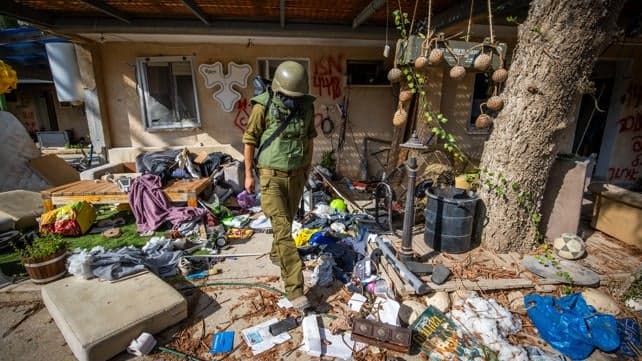We Could Have Saved Lives
IDF Special forces are furious: "We were mobilized on October 7th – but the army sent us to Jerusalem!"
A reserve Master Sergeant and other fighters from the Border Police's elite undercover unit have revealed they arrived at their base that Saturday only to find their combat gear missing. Even worse, they were barred from heading south to help tackle the chaos unfolding in the communities under attack.

Outrage, profound frustration, and scathing criticism have emerged from reserve members of the Border Police's elite undercover unit. The story broke today on Esti Perez's "Half Day" program on Kan Reshet Bet, offering a glimpse into the scale of the October 7th failure.
The special unit operatives shared their bitter experience of mobilizing to assist the Gaza border communities on October 7th, only to discover most of their combat equipment had vanished from their Jerusalem base. But their most damning complaint was being left hanging for two days, blocked from heading south because the area wasn't officially under their jurisdiction.
"Throughout our service, we trained as an urban warfare unit - hostage rescue, counter-terrorism, putting our lives on the line. Instead, we found ourselves pacing around uselessly when we could have been saving lives," Reserve Master Sergeant R. said bitterly.
"When we got to base on October 7th, we were stunned to find our emergency gear gone - no weapons, no helmets, no tactical vests. We didn't even get weapons until the end of that first day, and then without any attachments. We tried to head south, but while one vehicle went to pick up our guy who lives down there, they made another vehicle turn back. For two absolutely crucial days, we just sat at base, no equipment, twiddling our thumbs. Once we finally got our gear, they wouldn't let us go south - said we had to stay put in Jerusalem," he explained.
The police response claimed the reserve platoon was still in its formation phase and that all reserve fighters received full combat gear that day. They defended their decision to keep forces in Jerusalem while sending national units south, arguing it prevented additional fronts from igniting, with their forces successfully preventing a major escalation in East Jerusalem.
These accounts highlight a troubling disconnect between combat readiness and red tape during those critical early hours of October 7th, raising serious questions about how emergency response protocols function during national crises.